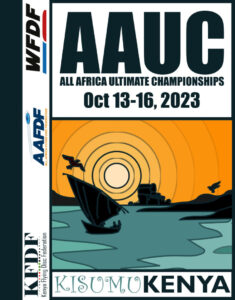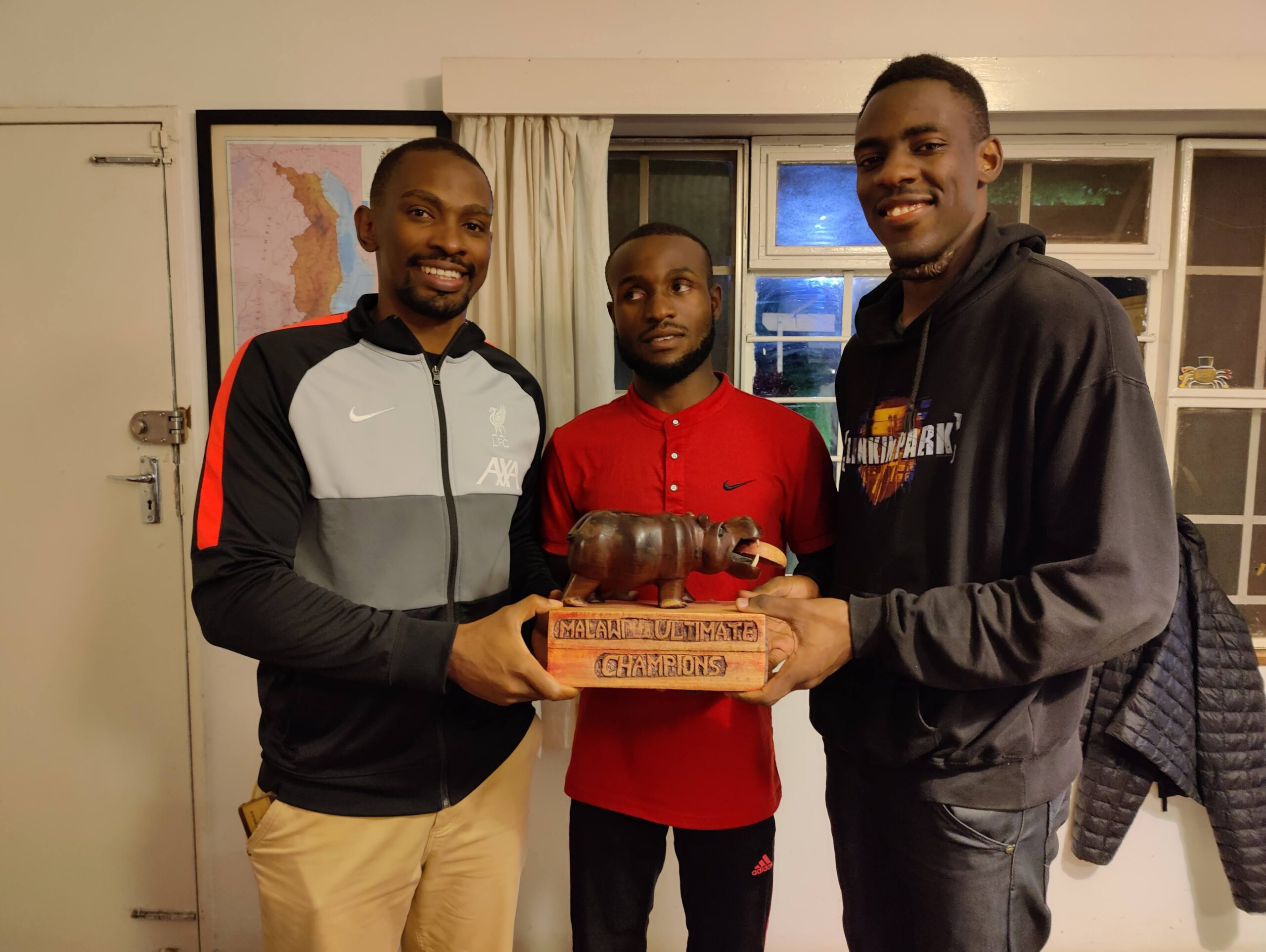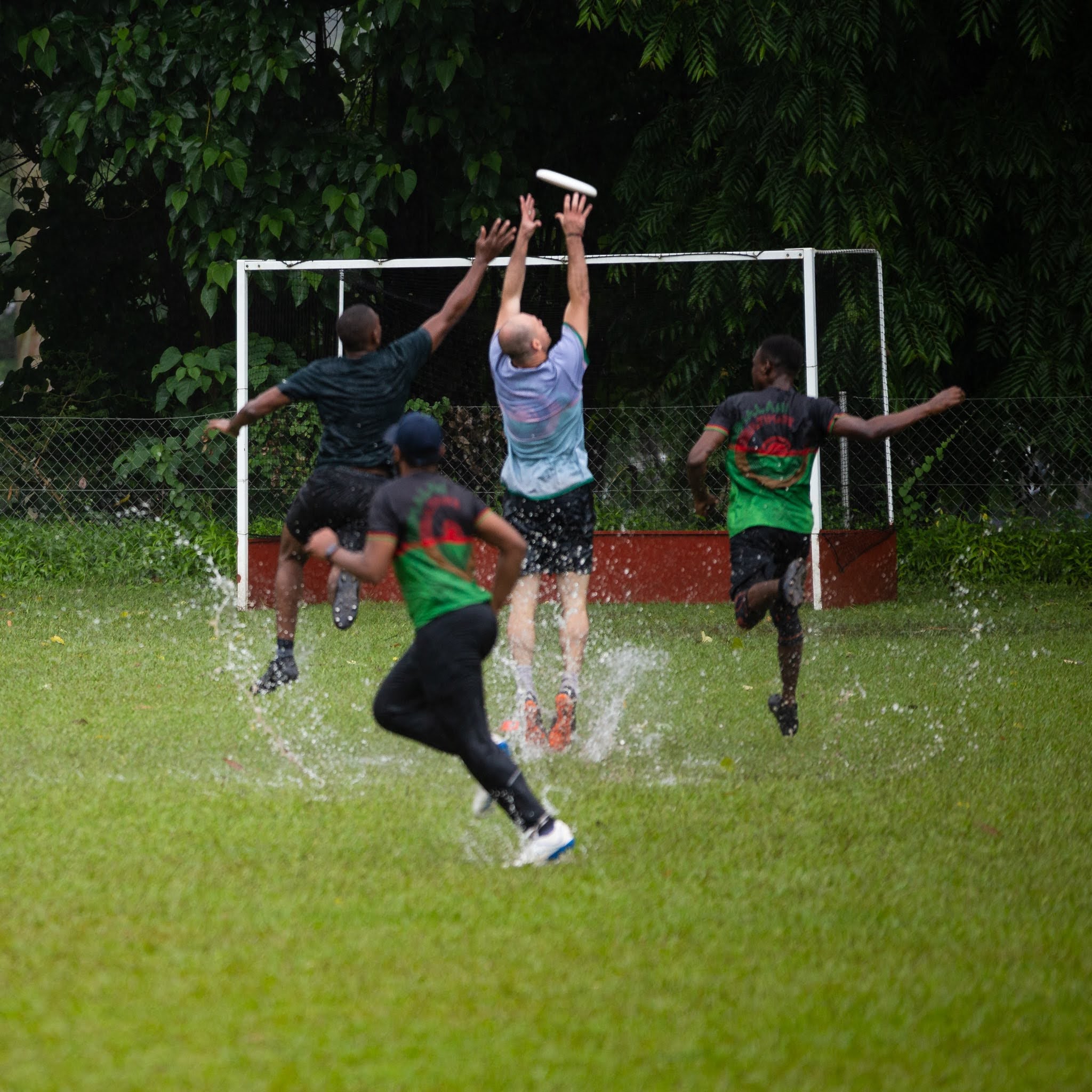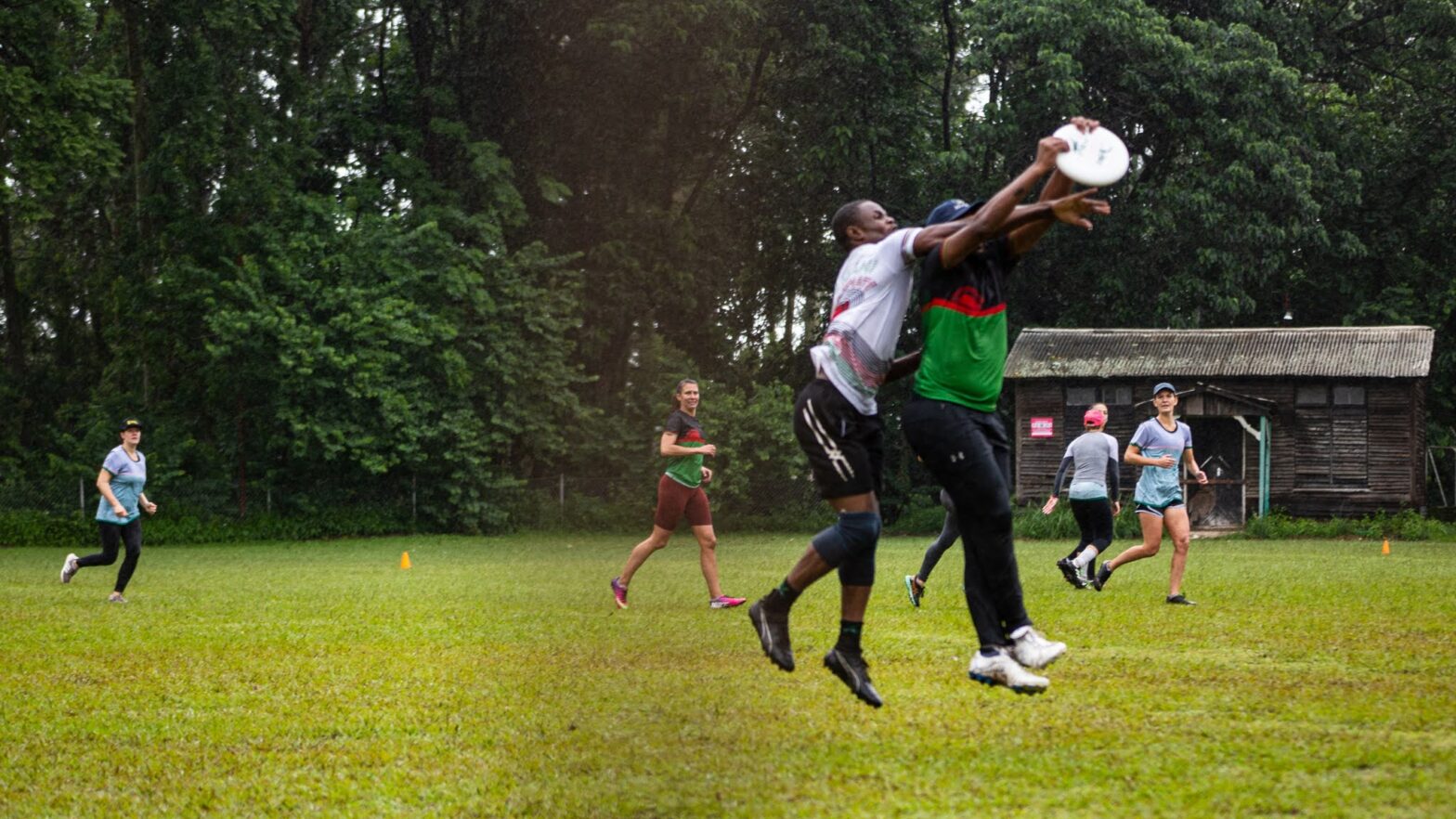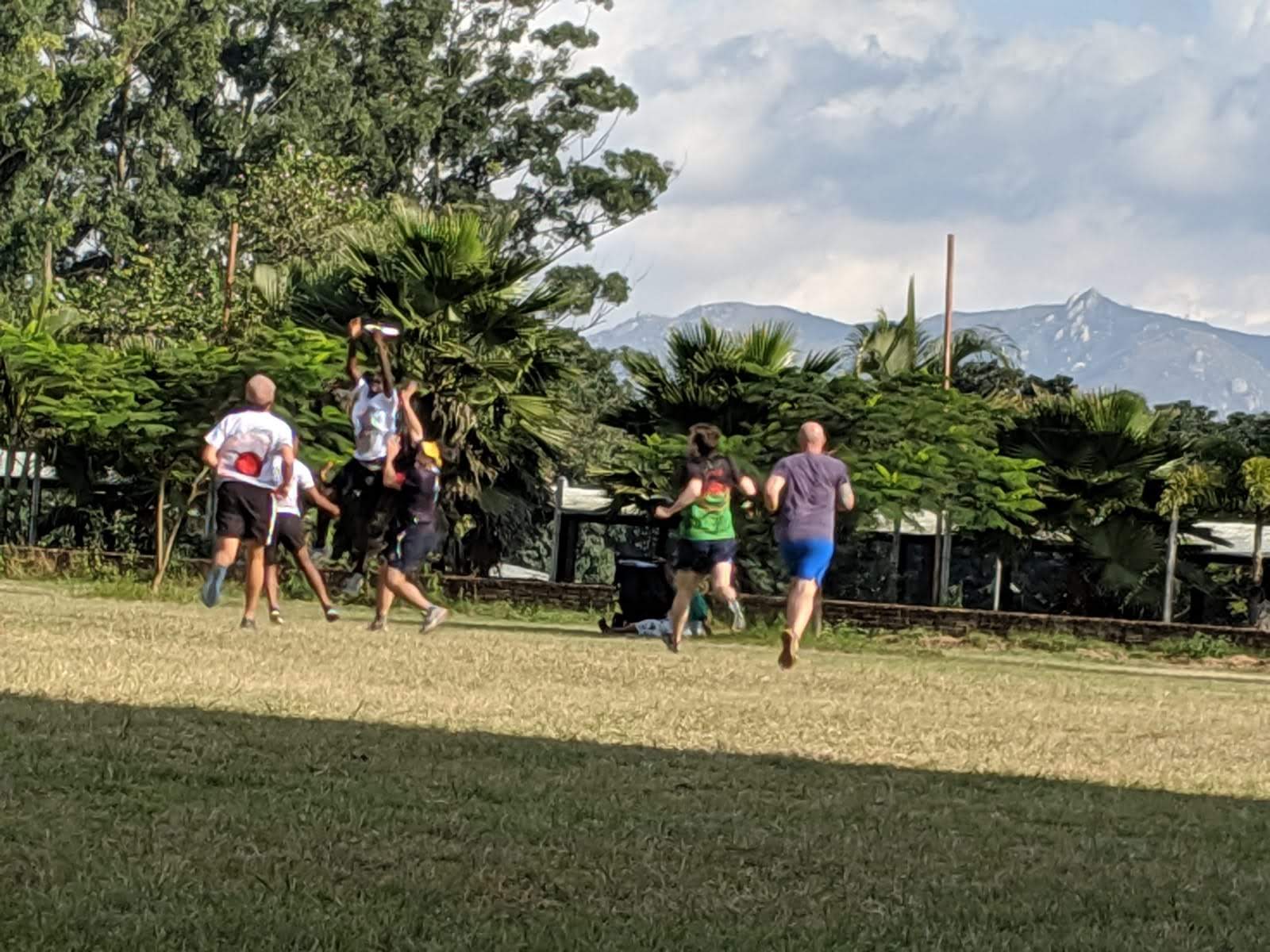In a hat tournament, all registered players are put into mixed teams, where we try to balance the teams on ability.
Below is all the information you’ll need to take part.
Register here: https://forms.gle/F4bxWUFtFtEqqKk39
Jump to specific info:
- Location
- Cost
- Refreshments
- Spectators
- Programme
- Tournament Structure
- Locations of key venues
- Accommodation
- Thanks
Location
St Andrew’s High School, Nyambadwe/Ndirande, Blantyre.
Cost
Free to enter.
If you can afford to contribute towards any of the following, it would be greatly appreciated:
- Food
- Field hire
- Party
- PA
Refreshments
Drinks
Filtered water will always be available for free.
Cold drinks will be available to buy.
Food – for players
- Friday lunch: provided by the Blantyre team (picnic-style)
- Friday dinner: not provided, but those who want to can meet at Annie’s Lodge
- Saturday lunch: lunch by the pool, catered – paid for by Blantyre team
- Saturday dinner: braai at the party (Chloe, Asher and Ayla’s house)
Spectators
If your friends or family would like to come to watch any or all of the games, they are very welcome.
Please send Asher (+265888055773) their names, so they can be added to the list given to the G4S guards at the gate.
We won’t be providing food or drinks for spectators unless we know by 28th February that they are coming, and they are willing to contribute to the cost.
Programme
| Day | Time | What’s happening? |
|---|---|---|
| Friday, 3rd March | 13.30 | Registration & shared lunch (provided by Blantyre players) |
| 15.00-18.00 | First rounds of games | |
| 19.00 | Annie’s Lodge for food and drinks | |
| Saturday, 4th March | 09.00 | More games |
| 12.00 | Lunch (catered) and swimming | |
| 14.00 | Final games (knockout) | |
| 18.00 | Party at Chloe, Asher and Ayla’sPrize-giving | |
| Sunday, 5th March | 10.00 | Pick-up games for those whose legs still work |
Tournament structure
Games will be 5-aside (5 players on the field from each team).
We are expecting 6 teams of 7 players each.
The final number of teams, and the sizes of them, will be decided on the day, when we have everyone registered.
In the first rounds (Friday afternoon and Saturday morning), all teams will play each other. This will then create seeding for the knockout games on Saturday afternoon, which will decide the winners of the tournament.
Winning a game
First team to 7 wins, no winning margin needed.
Time cap
At 40 minutes a horn will sound. When the horn goes, finish playing the point. If one team is winning, once the point has finished, they win the game. If the game is tied, play a deciding point.
Winning the final
Before the start of the final game the two teams playing will agree whether they stick to the same rules, or whether they would like to:
- Introduce a winning margin (i.e. you must win by 2 clear points)
- Remove the time cap
Rules
We’ll be using the normal WFDF rules, except for field size and number of players.
We won’t use any special Blantyre or Lilongwe rules, so:
- No push-ups for out of bounds pulls
- Anyone can pull (not just the scorer)
Teams
There should be 5 players from your team on the field at all times.
Substitutes may be made in-between points (except in the case of an injury). How teams use their substitutes is up to each team.
As we have attempted to balance teams based on abilities, there will be no required gender split.
How teams are split up
We’re using the The Ultimate Hat‘s website to split the teams, based on the scores each player has given themself.
The super high-tech program takes all the player data and organizes them into even teams based on the following criteria/order:
- Team size (make sure each team has as close to the same number of players as possible).
- Blantyre/Lilongwe ratio (make sure each team has as close to the same number of Lilongwe players as possible – we want to play with new people!).
- Skill (every team will be as close as possible in skill rank).
- Height (make sure no team isn’t 6″ taller on average than any another team).
- Age (when all else is said and done, try to even out the ages some).
Field size
As we are playing 5-aside we will be using reduced-sized fields. We’ve taken these suggested dimensions from Montreal Ultimate. The shorter field means more players are in range for throwing a goal/assist from more of the field. The shorter endzones mean passes into the endzones have to be more accurate.
Spirit
‘Spirit of the Game’ is essential to keeping ultimate fun and competitive. We want to use this tournament to encourage people to learn about the game, and enjoy playing it; good spirit is at the heart of this.
Spirit Captains
Each team will appoint a spirit captain. They will be responsible for helping to resolve any disputes between players and teams. They will also be responsible for leading Spirit Circles and collecting Spirit Scores.
Spirit Scores
After each game, teams should take a couple of minutes to reflect on how the game went, and fill out a short form to score the other team. The forms should be handed in to the Tournament Director.
Spirit Circle
After filling out your Spirit Scores, both teams should circle up and give the other team brief feedback on what they did well. If there were any issues on the field Spirit Captains could take this time to constructively explain how to avoid them in future games.
Spirit Winners
Using the Spirit Scores, a Most Spirited Team and Most Spirited Player will be awarded at the end of the tournament.
Likely format
| Day | Time | Field 1 | Field 2 | Field 3 |
| Friday | 15.00-15.40 | X v A | B v Y | Z v C |
| Friday | 16.00-16.40 | Z v X | A v Y | C v B |
| Friday | 17:00-17.40 | Y v Z | B v A | X v C |
| Saturday | 9.20-10.00 | Z v A | X v B | C v Y |
| Saturday | 10.20-11.00 | A v C | Y v X | B v Z |
| Break | Lunch | Beer | Tactics | Beer |
| Saturday | 14.00 – 14.40 | P4 vP5 (QF1) | P3 v P6 (QF2) | |
| Saturday | 15.00 -15. 40 | Winner QF1 vs P1 (SF1) | Winner QF2 vsP2 (SF2) | |
| Saturday | 16:00 – 17:00 | Final |
Locations of key venues
- St Andrew’s High School Ndirande Gate (secure parking here, please use this gate): https://goo.gl/maps/w2bgU2DqLqCWJPHH8
- Main field, where we’ll be playing
- Chloe, Asher, and Ayla’s house: https://goo.gl/maps/ndMAFcaFu84ohhLU7
- Annie’s Lodge: https://goo.gl/maps/gz9711gCEzweBLMP6
Lilongwe ⬆️
⬇️ Central Blantyre
Accommodation
We’ll do our best to put up all players travelling from outside Blantyre with one of our players here. If you need accommodation please say so on the registration form: https://forms.gle/tqbyRqt5njs1oL1Q9
Or send Asher a message on +265888055773
Thanks
Physio services provided by BetterLife Physiotherapy (+265 884 60 11 34)

Graphic design by Keith Tembo (+265 994 34 73 07)

